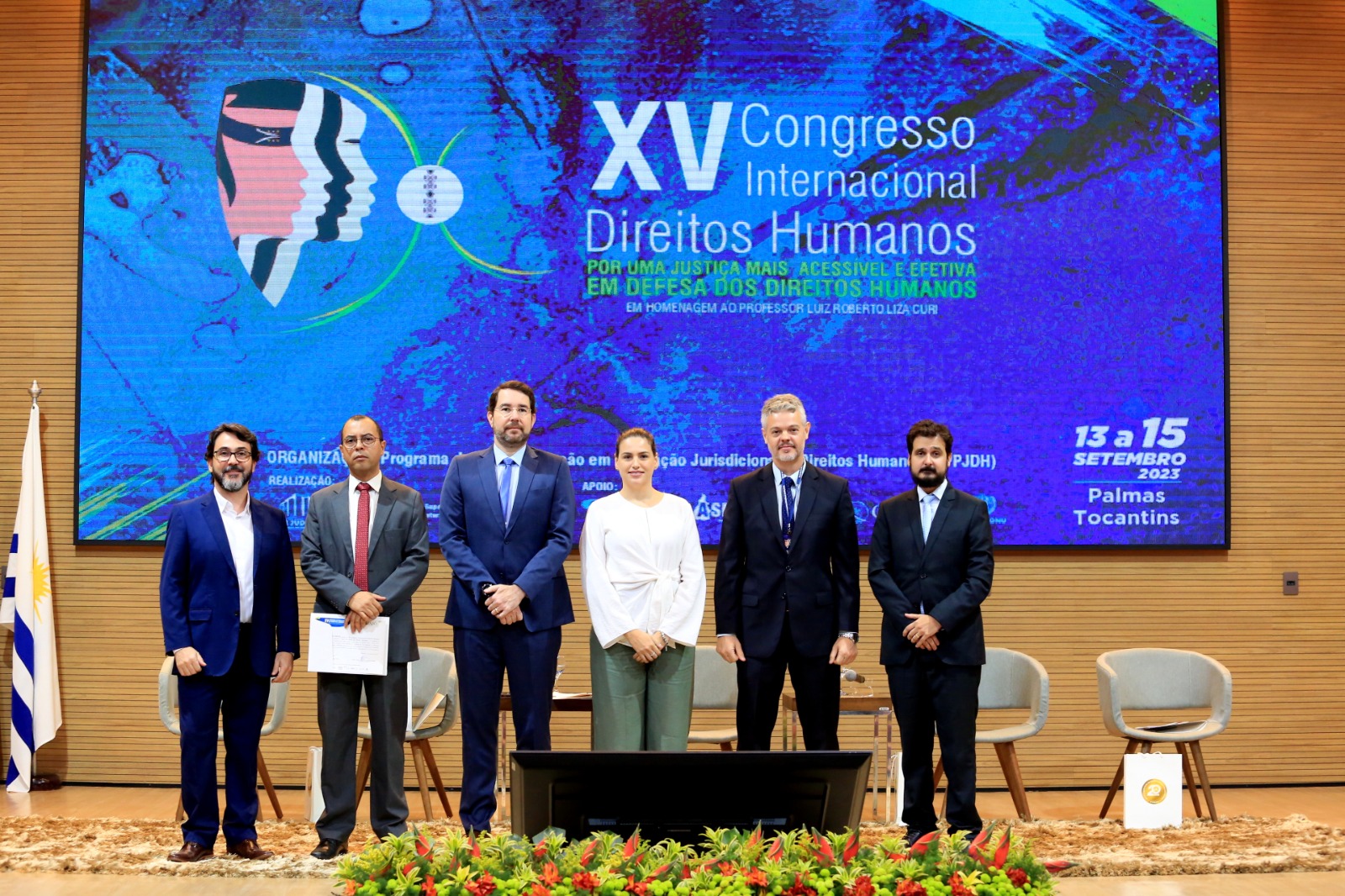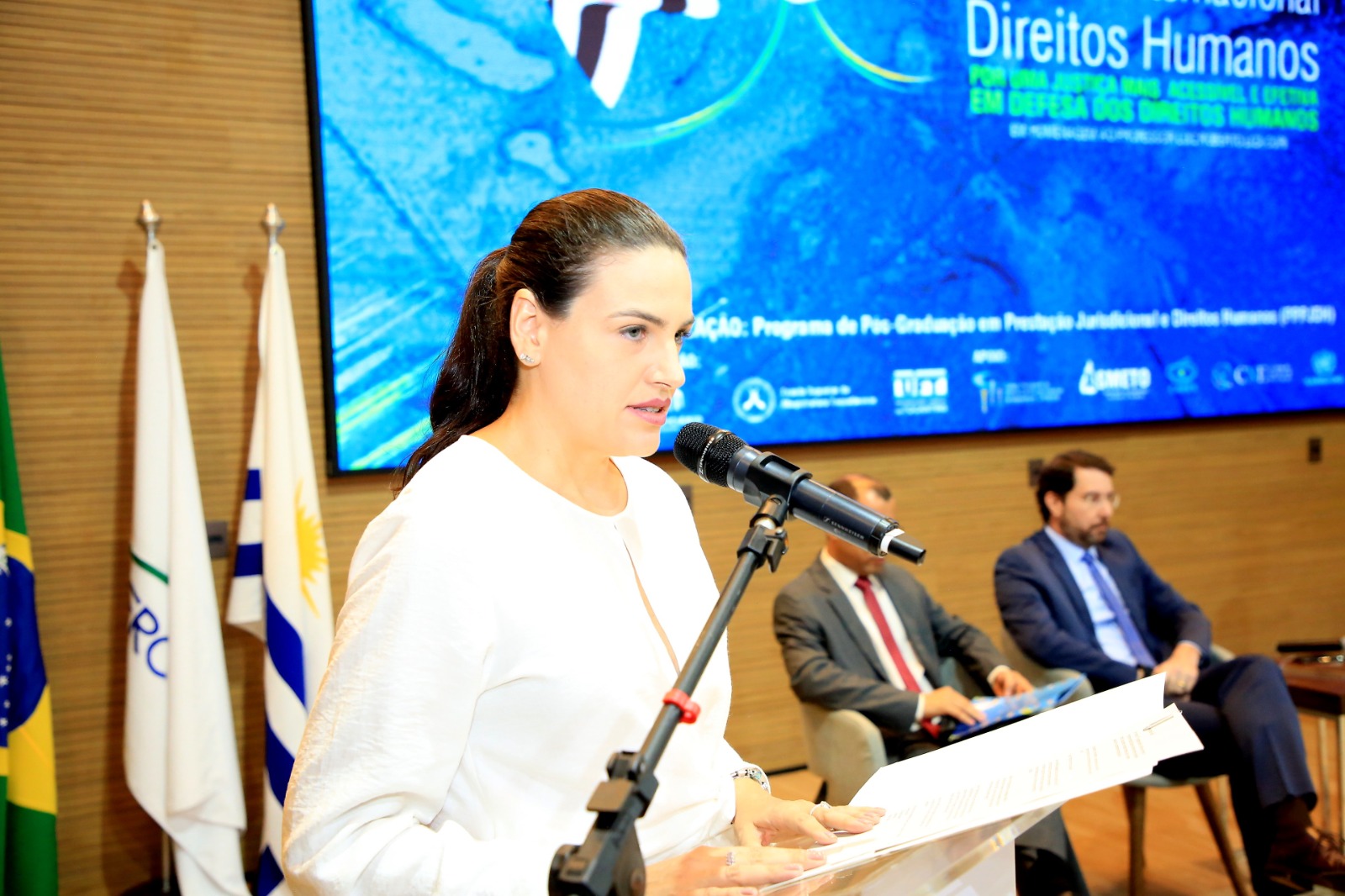
"As a teacher and researcher, I'm very happy to be starting the communications of today, as we'll be sharing knowledge and, above all, highlighting how the scientific method can be applied to solve social problems and be an instrument for transforming reality," said Professor Lia de Azevedo Almeida, chairwoman of the oral communications sessions, as she began the activities of the third and final day of the XV International Congress on Human Rights.

The sessions held on Friday morning (September 15th) focused on highlighting the results of research carried out by students and former students of the stricto sensu programs promoted by the Superior School of the Judges of the State of Tocantins (ESMAT). The action aimed to show how the scientific method can become a powerful tool for solving social problems and effectively transforming society.
Sessions
During his presentation, doctoral student Judge Roniclay Alves de Morais expressed his gratitude for the invitation of the school to take part in the congress. "I would like to thank Esmat for inviting me to be here once again at the congress. It was of great value to me, as I was able to revisit my work, which is still under construction. This week has been extremely productive," he said.
Roniclay presented the basic scope of his project and explained some aspects of his research on "The environment as an independent human right: impacts of the Advisory Opinion No. 23/2017 of the Inter-American Court of Human Rights for Brazil".
Doctoral student Judge Ricardo Gagliardi addressed the topic of "Four paradoxes of the criminal justice system and the democratic rule of law" and later, Master Bernardino Cosobeck da Costa presented his dissertation on "Social justice in the face of vulnerable children: the Jury/Happy Child project in the State of Tocantins". Closing the sessions, Judge Fábio Costa presented the theme on "Analysis of criminal repression in Brazil: between guarantorism and the economy of crime".




